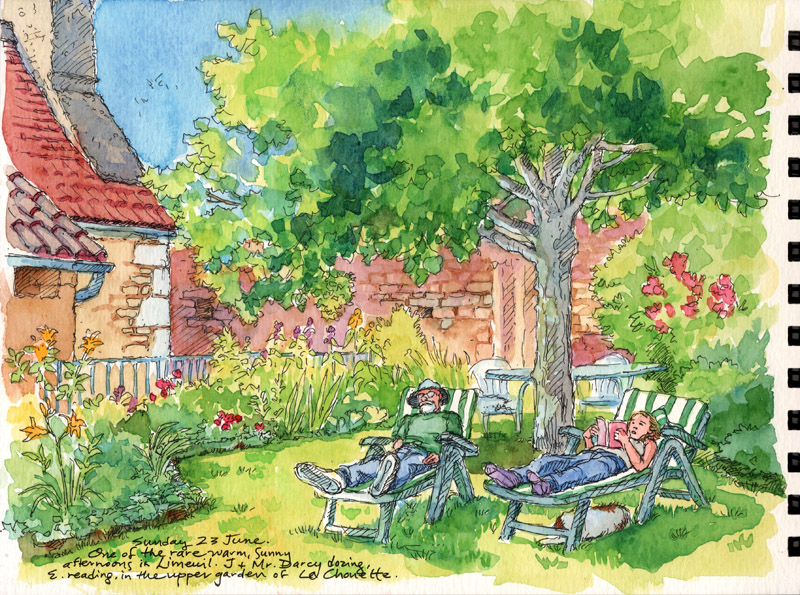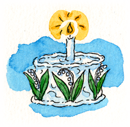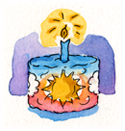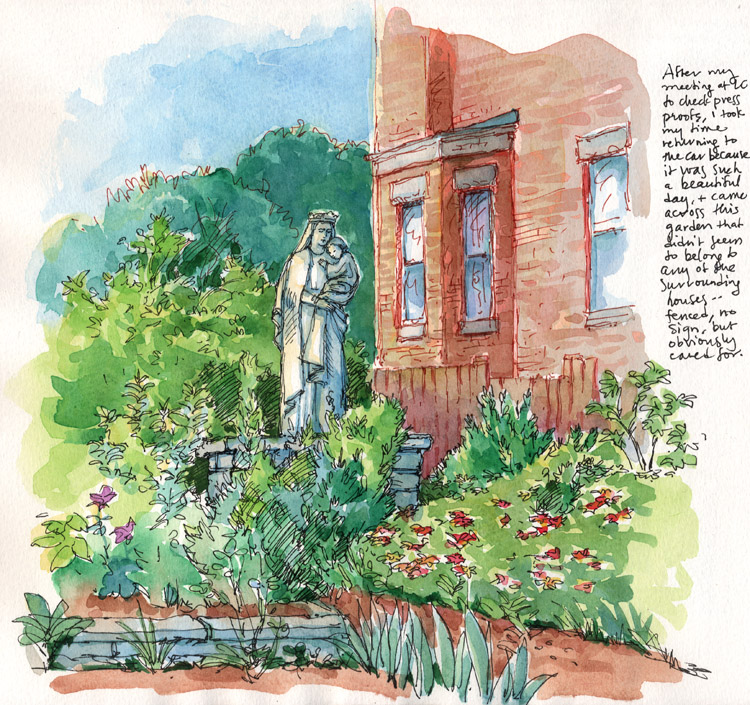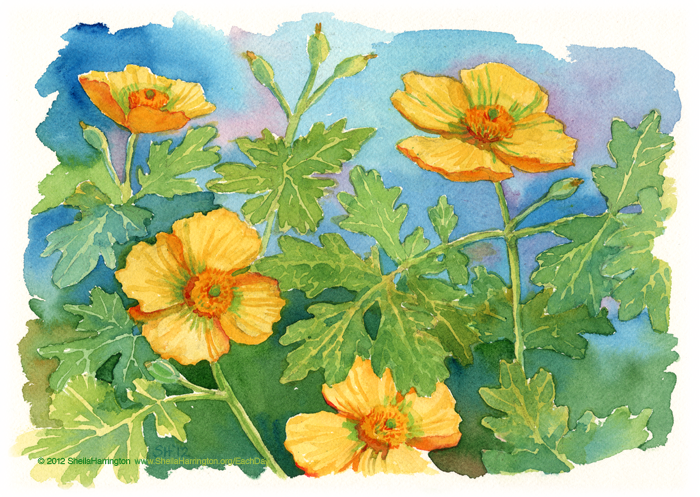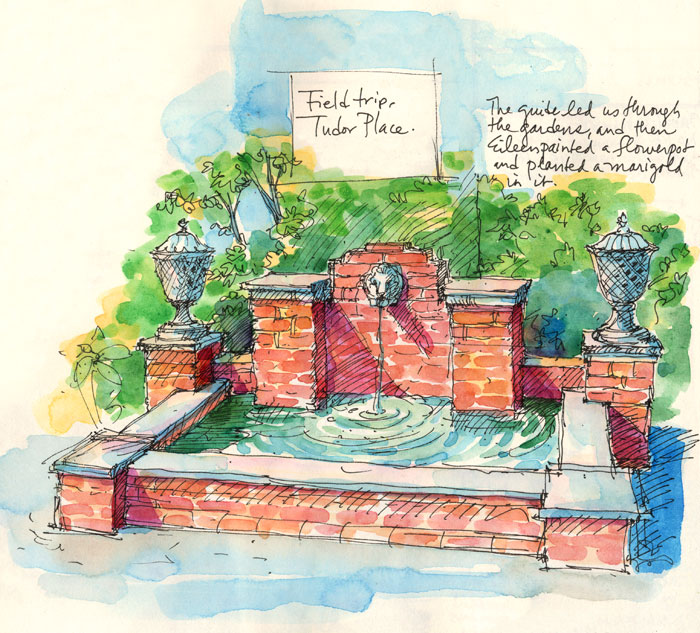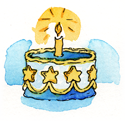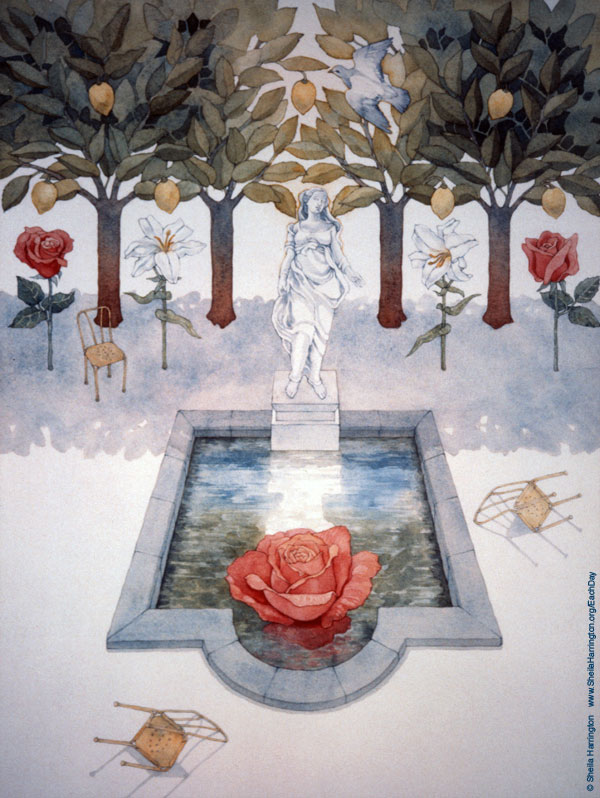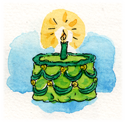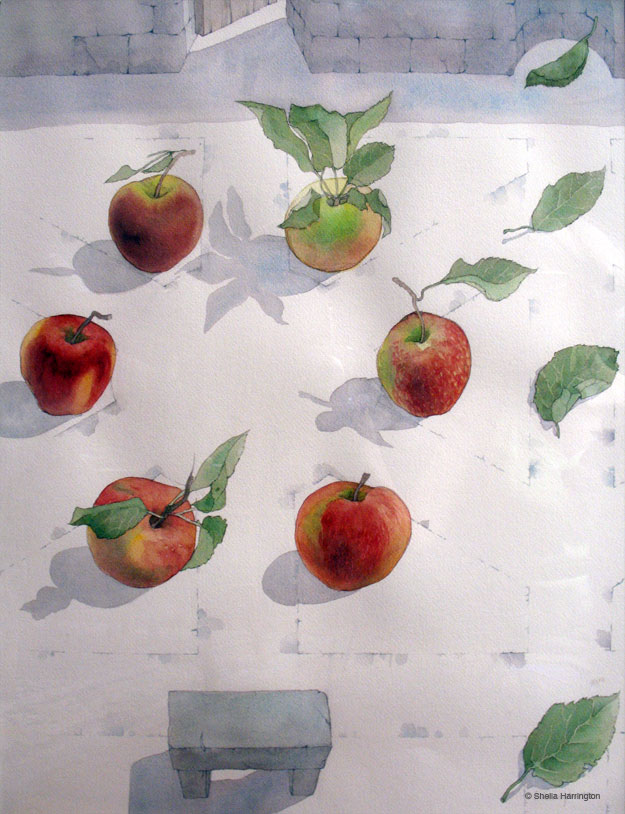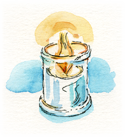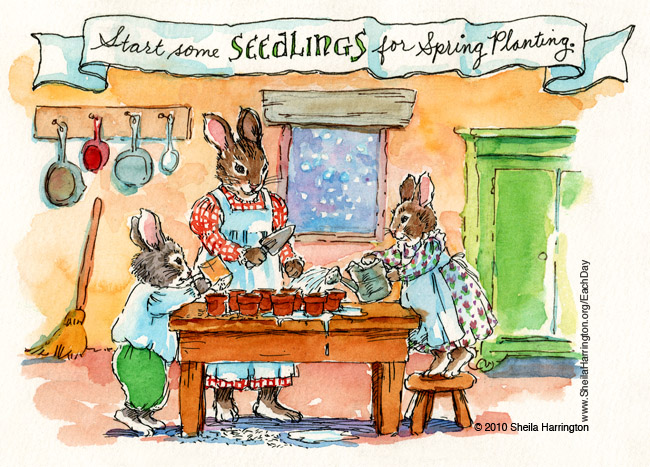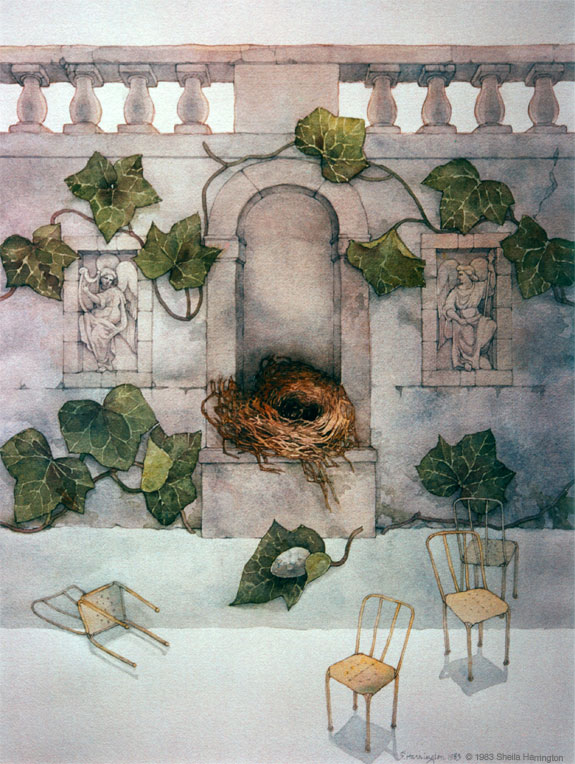A rare sunny afternoon in this cold soggy summer, so we spent it in the garden of La Chouette.
Tag: Garden
Through Hills and Seas to the Universe
I carved out some time on my birthday to sit in the garden, despite deadlines, mosquitoes and heat, to sit and sketch. It was quiet except for the chirping of birds (especially numerous in our tiny garden this spring) and the distant hum of air-conditioners along the alley. Even a short time spent among growing things is restorative. I share the sketch and this poem.
The trees put forth luxuriant foliage,
the spring begins to flow in a trickle.
I admire the seasonableness of nature
and am moved to think
That my life will come to its close.
So little time are we granted human form in the world.
My eyes wander
over the pictures of hills and seas.
At a single glance
I survey the whole universe.
He will never be happy,
whom such pleasures fail to please!
—Tao Ch’ien
Mothers Day
On my way back from the Library of Congress one morning, it was such a beautiful day that I took my time strolling through Capitol Hill, and I came across this mysterious garden—completely fenced, with no apparent connection to any of the surrounding houses, and bearing no sign, yet obviously cared for.
Often I carry my sketchbook without taking the opportunity to use it, but this time I justified my delayed return in order to sketch a subject so suitable to the season. Happy Mothers Day, all you Blessed Mothers everywhere, past, present, and to come!
The Sunlight on the Garden
As we approach the end of summer, a rather melancholy poem, on the birthday of its author John MacNeice (1907-1963). By way of contrast, a watercolor of sunny wood poppies, which bloom most satisfactorily all season long and sprinkle their seed generously every year, ensuring a steady supply of offspring. Painted for sunny and generous Colette.
The sunlight on the garden
Hardens and grows cold,
We cannot cage the minute
Within its nets of gold;
When all is told
We cannot beg for pardon.
Our freedom as free lances
Advances towards its end;
The earth compels, upon it
Sonnets and birds descend;
And soon, my friend,
We shall have no time for dances.
The sky was good for flying
Defying the church bells
And every evil iron
Siren and what it tells:
The earth compels,
We are dying, Egypt, dying
And not expecting pardon,
Hardened in heart anew,
But glad to have sat under
Thunder and rain with you,
And grateful too
For sunlight on the garden.
—Louis Macneice
A Field Trip for Moms
If you have not yet visited Tudor Place in Washington, DC, and the mothers in your life (perhaps including yourself) are fans of garden walks/historic houses/afternoon tea, you may want to add it to your Expeditions list. Built in 1816 by Martha Washington’s granddaughter, Tudor Place sits on, unbelievably, five (5!) acres in the middle of Georgetown, and is a green, flowery and bird-filled retreat from the busy surrounding streets.
I post this sketch today because Tudor Place was one of our three-generation (grandmother-mother-daughter) destinations when my mother was still with us, and every visit is a lovely, though poignant, reminder. Happy Mothers Day, Mom, and all you mothers out there. May your day hold flowers and bird-song.
My Heart is Like a Singing Bird
On this Valentine’s Day, a poem by Christina Rossetti, and a painting.
For another beautiful Valentine poem, and a different painting, please see The Song of Wandering Aengus.
My heart is like a singing bird
Whose nest is in a water’d shoot;
My heart is like an apple-tree
Whose boughs are bent with thick-set fruit;
My heart is like a rainbow shell
That paddles in a halcyon sea;
My heart is gladder than all these,
Because my love is come to me.
Raise me a daïs of silk and down;
Hang it with vair and purple dyes;
Carve it in doves and pomegranates,
And peacocks with a hundred eyes;
Work it in gold and silver grapes,
In leaves and silver fleurs-de-lys;
Because the birthday of my life
Is come, my love is come to me.
—Christina Rossetti (1830-1894)
Apple Garden
New Year’s Resolution: Garden
Every year I plan to be organized enough to start our vegetables INDOORS instead of succumbing to the purchase of seedlings at the garden center. I’ve managed it only twice, but I remain hopeful. The beautiful High Mowing Organic Seeds catalogue just arrived in the mail, with its tempting photographs of artichokes, fennel, and ornamental gourds… items I know will never be seen in our tiny, semi-shaded Mid-Atlantic garden unless they fall out of the grocery bag on the way to the house. However, those Japanese greens and Red Russian kale look pretty interesting.
I still have time. (And so do you!)
This World is not Conclusion
Today is the birthday of Emily Dickinson (1830-1886), and it is difficult to choose from among her rich and relentless outpouring. But here is one to ponder as we move inexorably, yet hopefully, toward the darkest time of year.
This World is not Conclusion. A Species stands beyond — Invisible, as Music — But positive, as Sound — It beckons, and it baffles — Philosophy — don’t know — And through a Riddle, at the last — Sagacity, must go — To guess it, puzzles scholars — To gain it, Men have borne Contempt of Generations And Crucifixion, shown — Faith slips — and laughs, and rallies — Blushes, if any see — Plucks at a twig of Evidence — And asks a Vane, the way — Much Gesture, from the Pulpit — Strong Hallelujahs roll — Narcotics cannot still the Tooth That nibbles at the soul ——Emily Dickinson
Advent I: I Heard an Angel Singing
This year the First Sunday of Advent happens to fall on the birthday of visionary poet and artist William Blake (1757-1827). And so it seems appropriate to post this poem, with its manifestation of hope in the midst of bleak reality.
I heard an Angel singing When the day was springing, “Mercy, Pity, Peace Is the world’s release.” Thus he sung all day Over the new mown hay, Till the sun went down And haycocks looked brown. I heard a Devil curse Over the heath and the furze, “Mercy could be no more, If there was nobody poor, And pity no more could be, If all were as happy as we.” At his curse the sun went down, And the heavens gave a frown. Down pour’d the heavy rain Over the new reap’d grain … And Miseries’ increase Is Mercy, Pity, Peace.—William Blake

